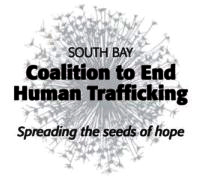Premises:
- Journalism in a democracy aims to contribute constructively to society by providing audiences with information necessary to make informed decisions about their lives, communities, and government. Reporting that focuses narrowly on the problem of HT can cause harm, because the problem is only part of the story that needs to be told. Journalists can maximize positive impact by reporting more holistically on the many efforts to combat HT being advanced within and across multiple sectors, including by survivors themselves. Stories have the ability to heighten public awareness in identifying potential survivors and not criminalizing victims. Responsible reporting can influence policy development and provide a means to hold exploiters and beneficiaries of trafficking accountable (e.g. businesses profiting from exploitation or buyers of a trafficked person).
- Some journalism on HT has been damaging to survivors and efforts to end HT. For this and other reasons, advocates feel a tension between wanting to protect survivors versus wanting to inform journalists about efforts to combat trafficking, the needs of survivors, exemplary service provision, and policy developments.
- Public information officers often have to engage conservatively with media in the interests of protecting first responders and law enforcement involved in operations, while preserving the privacy needed in a HT investigation.
- Many HT survivors are wary of talking with journalists. Several guides have been published for survivors on how to handle interview requests from journalists, but they tend to position survivors in a defensive stance. This toolkit complements those, centering survivors’ ability to help influence public perceptions of HT by catalyzing hope-based and solutions-oriented journalism that advances efforts to combat HT.
Origins:
The idea for this toolkit began in a conversation between Deborah Pembrook and Kirsten Foot in the spring of 2019. Deborah invited Sharan Dhanoa into the conversation, and soon afterwards Kirsten invited Nicole Dahmen to join in the planning for and development of it. In January, 2020, an introduction to hope-based and solutions-oriented journalism and a skeleton of the toolkit were presented at a Media Symposium hosted by the South Bay Coalition to End Human Trafficking. Attendees and other experts were invited to contribute to the development of the toolkit via a series of subsequent meetings in which preliminary versions of the guides were discussed, elaborated, and refined. Nearly twenty individuals representing each intended audience group contributed to the toolkit by adding, reviewing, and/or editing content.
Dedication
This toolkit is dedicated to the memory of Deborah Pembrook, whose wisdom guided every element and without whom it would not exist.




